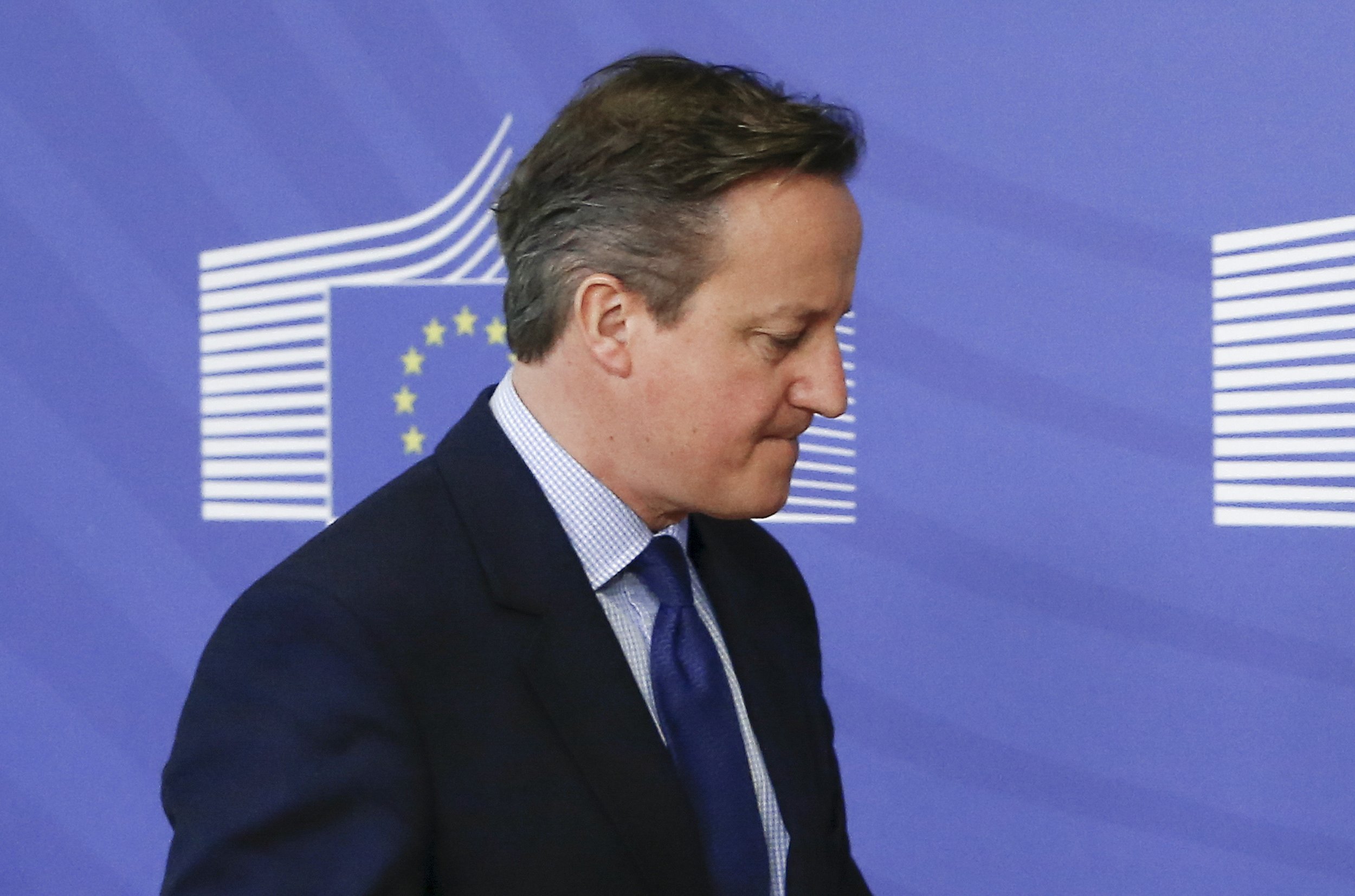
David Cameron's deal with Donald Tusk was meant to look like the culmination of a tough negotiation, in which both sides made compromises. But the spin is transparent. The rows were scripted. The whole process was engineered to hide the fact that nothing has changed. In fact, if the final deal reveals anything, it's that the door has been left open for more integration.
Far from being at loggerheads, Cameron and Tusk have clearly worked together to put a new façade on the status quo. Cameron's demands were empty from the start: a tokenistic recognition that Britain isn't part of the eurozone, a nominal exemption from "ever closer union," an even deeper single market.
The one substantive demand he made was petty: a four-year moratorium—the so-called emergency brake—on in-work benefits for new EU migrants. But even that has been watered down. The deal doesn't empower member states to restrict benefits. It only empowers the Council to authorize member states to do so "to the extent necessary." In other words, it's all at Brussels' discretion. The emergency brake isn't even in our hands.
The same applies to the other supposedly significant change in the deal: the "red card" system for national parliaments to block EU legislation. Per the deal, the red card requires 55 percent of legislators across 28 member states to agree, and even then it would only trigger a "comprehensive discussion" in the Council. So much for the sovereignty of Parliament.
In fact, the deal is so threadbare, it falls short of even Cameron's original expectations. Over the years, he has called for a complete opt-out from the Charter of Fundamental Rights, exemptions from EU directives affecting small businesses and the Working Time Directive, and repatriating powers on employment legislation, social affairs, crime, and the environment. How many of these has he secured? Zero.
The weakness of the deal won't come as a surprise to Eurosceptics, though. What will worry them is the provision it makes for more integration, like the requirement for non-eurozone members to "refrain from measures which could jeopardize the attainment of the objectives of the economic and monetary union."
Britain is hardly immune from the endemic economic crisis created by the eurozone project. Yet now we'll be formally forbidden from making any effort to stop the EU compounding the problem. Are we really supposed to believe that this deal safeguards our economic security?
The Cameron-Tusk deal was meant to show there was a third way in the coming referendum. What we now know for certain is that there isn't: We have to decide whether to stay in an unreformed EU, or leave.
The deal does, however, encapsulate why more and more people in Britain want to leave: government by unaccountable elites, secret deals behind closed doors, deliberate attempts to deceive British voters. The EU is an affront to democracy. Today, it has proved once again that it can't operate any other way.
In fact, the whole concept of this "renegotiation" highlights that something has gone seriously wrong. Normal countries treat their sovereignty as non-negotiable. But for successive British governments, it is something to be nonchalantly bartered away.
The EU is a failed political and economic project. It is rooted in corporatism, protectionism, and dirigisme: Nothing announced today has changed that. So there is still only one solution to the European question: We need to vote Leave.
Douglas Carswell is the Ukip MP for Clacton. He blogs every day at talkcarswell.com.
Uncommon Knowledge
Newsweek is committed to challenging conventional wisdom and finding connections in the search for common ground.
Newsweek is committed to challenging conventional wisdom and finding connections in the search for common ground.
About the writer
To read how Newsweek uses AI as a newsroom tool, Click here.








